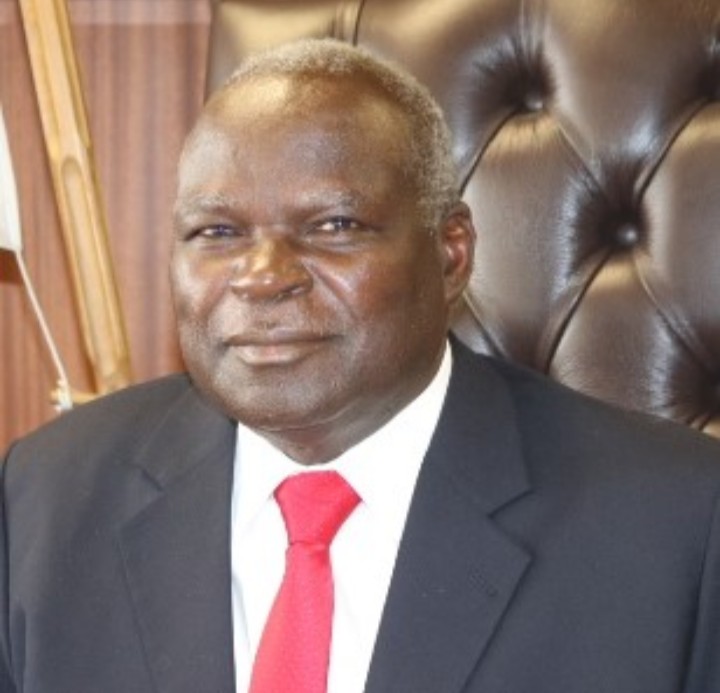|
Getting your Trinity Audio player ready…
|
By Joyce Mukucha
In an effort aimed at empowering and equipping traffic enforcement officers with the necessary skills to deal with traffic congestion and enforce regulations and by-laws, the government has launched the Harare Municipal Traffic Training Programme at Morris Depot.
Speaking during the programme launch in Harare yesterday, the Minister of Local Government and Public Works, Honourable July Moyo said the essence of the programme was to address traffic congestion which has become uncontrollable in the Central Business District (CBD).
“According to the Central Vehicle Registration statistics, the volume of traffic in our roads has increased over the years to about 1,5 million vehicles plying the Central Business District. The static nature of our road infrastructure and increased volume of traffic together contribute towards traffic congestion,” he said.
He pointed out that the Inter-Ministerial Committee on Traffic decongestion realised that the challenges are a result of a plethora of factors which include illegal structures, unregistered motor vehicles, and inadequate traffic enforcement officers.
“Firstly, there are illegal structures including car sales on the road servitudes. These structures restrict the width of a road thereby causing traffic congestion. Vendors also contribute to the menace by displaying their water on the road.
“Secondly, it has been noted with concern that despite the ban on commuter omnibuses not franchised to ZUPCO, the use of unregistered motor vehicles and pirate taxies in the city has increased.
“Of concern, also are unregistered motor vehicles which continue to carry passengers in and out of Harare’s CBD using undesignated bus- stops. Drivers of such vehicles have adopted a militant approach which poses danger to other motorists and pedestrians. The majority of these drivers are not licensed while most of the vehicles are not road Worthy.
“Thirdly, we have very few Traffic Enforcement officers on the ground compared to the increased number of vehicles, area to be covered and the number of offences being committed. The Government cannot sit and watch therefore an Inter-Ministerial Committee was set up to implement the cabinet decisions on decongestion.”
The Inter-Ministerial task force is comprised of five different ministries namely; the Ministry of Local Government, Public Works and National Housing, Ministry of Home Affairs and Cultural Heritage, Ministry of Information, Communications and Courier Services, Ministry of Transport and Ministry of Higher and Tertiary Education, Innovation, Science and Technology.
The Inter-Ministerial taskforce, the minister said, has therefore cast an eagle’s eye on three aspects necessary to tame the traffic jungle.
“The three aspects to combat traffic congestion are Infrastructure Development, Public transport logistics, and Enforcement. On infrastructure, we are talking about street lighting, repair of robots and traffic signals on major junctions, installation of new traffic lights, repair of roads and junctions, modification of roundabouts and improving terminal facilities.
“On public transport logistics, we are talking about procurement, hiring and deployment of ZUPCO buses, reviving traditional bus routes and using designated bus stops, introducing bus timetables and electronic payment system.”
On the enforcement aspect, Honourable Moyo said the ministry relies on the combined efforts from Zimbabwe Republic Police (ZRP) and Municipal Police.
He highlighted that the partnership between the two plays an imperative role in fishing out the unlicensed operators and vendors out of the streets thus, bringing back the sanity of the city.
“The joint cooperation between the ZRP and Harare City Council in the recent past saw the impounding of 3 209 vehicles and a total of 1001 vehicles were towed away to secure compound, 4572 vendors and 557 touts were arrested. Allow me ladies and gentlemen to applaud the good work by both the Zimbabwe Republic Police and Harare City Council.”
Additionally, he emphasised the urgent need to increase the manpower levels in the traffic department.
“We have approved the increase of establishment for traffic enforcement from the current 271 to 1 139 positions.”
Traffic Enforcement, he highlighted, also needs to be resourced in terms of vehicles, motorcycles and heavy duty tow vehicles. The Ministry of Local Government and Public Works has seen it fit to disburse $55 million dollars towards resource mobilization.
“The traffic Enforcement needs to be capacitated further in the form of training. This, we are gathered here to witness the launch of Harare Municipal Training Programme.”
He urged enforcement officers to master the discipline involved when carrying out their duties and desist from all forms of corruption.
“Corruption is cancer that has crippled many economies and as such, it must be condemned and discouraged at all times.”
He also reminded them that they have the responsibility to take great care of customers and exhibit unparalleled good public relations.
“Harare is the Capital City and harbors people of different persuasions. Your area of assignment is key to the manner in which you carry out your duty. Be polite and resolute. Your conduct defines the character of the city and its residents. Always remember that you are the City’s ambassadors,” said Minister Moyo.
